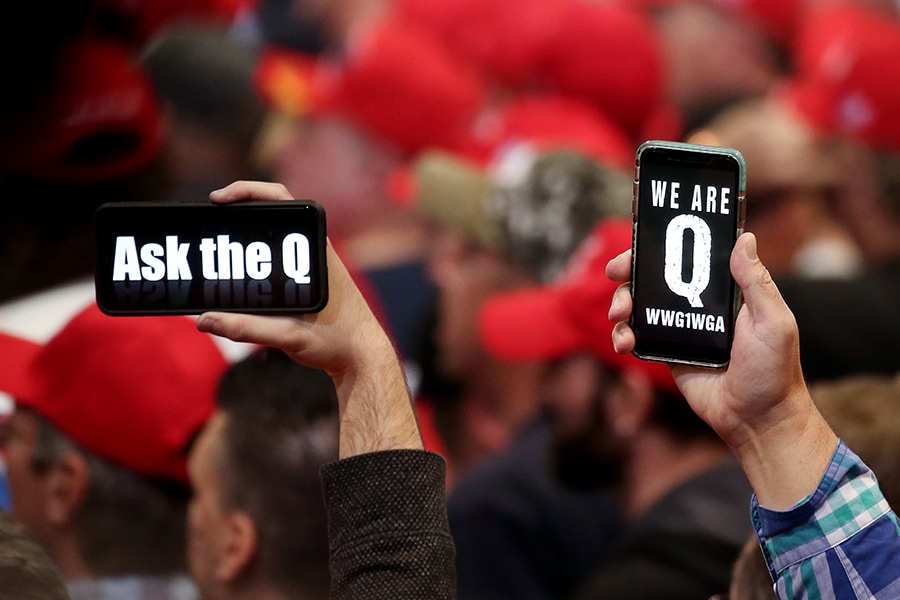
Google, Facebook broaden group to secure U.S. election
Several major tech companies will work with government agencies as a group to fight disinformation on social media and prevent a sullied 2016-like situation
 Supporters of President Donald Trump hold up their phones with messages referring to the QAnon conspiracy theory at a campaign rally at Las Vegas Convention Center on February 21, 2020 in Las Vegas, Nevada. The upcoming Nevada Democratic presidential caucus will be held February 22. Image: Mario Tama/Getty Images
Supporters of President Donald Trump hold up their phones with messages referring to the QAnon conspiracy theory at a campaign rally at Las Vegas Convention Center on February 21, 2020 in Las Vegas, Nevada. The upcoming Nevada Democratic presidential caucus will be held February 22. Image: Mario Tama/Getty Images
SAN FRANCISCO — Facebook, Google and other major tech companies said Wednesday that they had added new partners and met with government agencies in their efforts to secure the November election.
The group, which is seeking to prevent the kind of online meddling and foreign interference that sullied the 2016 presidential election, previously consisted of some of the large social media firms, including Twitter and Microsoft in addition to Facebook and Google. Among the new participants is the Wikimedia Foundation.
The group met Wednesday with representatives from agencies like the FBI, the Office of the Director of National Intelligence and the Department of Homeland Security to share insights about disinformation campaigns and emerging deceptive behavior across their services.
Discussions between the tech companies and government agencies have occurred periodically over the past four years. While some of the companies have made a practice of sharing leads about disinformation campaigns and other election threats, the efforts have been haphazard. The effort has broadened as the November election approaches, and the tech companies and agencies have tried to coordinate more frequently.
“In preparation for the upcoming election, we regularly meet to discuss trends with U.S. government agencies tasked with protecting the integrity of the election,” a spokesman for the group said in a statement. “For the past several years, we have worked closely to counter information operations across our platforms.”
©2019 New York Times News Service




